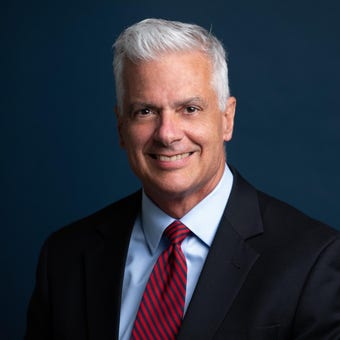David McIntosh discusses Trump, Desantis and other candidates in the burgeoning 2024 Republican presidential field
David McIntosh, president of politically influential and fiscally conservative group the Club for Growth, was interviewed by Fox News Digital at the start of his group's annual donor retreat in Palm Beach, Florida.
Give Biden administration bureaucrats and power brokers credit for something: They recognize a looming threat to their comfortable status quo when they see one. Accordingly, they have launched a multi-agency effort coordinated by the Securities and Exchange Commission to purge digital asset companies from the American economy.
With Republicans now in control of the House, that sets up a March 9 showdown, when the House Financial Services Committee’s Digital Assets Subcommittee convenes a hearing called "Coincidence or Coordinated? The Administration’s Attack on the Digital Asset Ecosystem."
The traditional centralized monetary system, as we know it in the United States, is tightly regulated by the federal government, which controls all facets of the system, including printing and minting physical currency and coordinating transactions with financial institutions. Adjustments to how the system operates can be made by unelected government bureaucrats, potentially with little-to-no public notice.
Under the decentralized mode of digital assets, no central authority is required. Bitcoin, for example, uses open-source software that allows the code to be maintained by a consensus of its users. Modifications and improvements can be made if a sufficient number of users agree – and this is a crucially important difference – with a centralized system, any changes would be transparent.
The decentralized nature of digital assets can only be viewed as a threat to those who favor expanding the size and role of government because digital assets act as free-market safeguards against abuses within centralized monetary systems. For example, the Biden administration cranked government currency printing presses into overdrive, enabling more government spending and sending America’s economy tumbling into an era of hyper-inflation. That scenario would be much less possible under a transparent, decentralized system.
The situation isn’t too dissimilar to that of the Chinese Communist Party which, having concluded it couldn’t control digital assets outright, banned them in 2021.
Another key differentiating feature in many digital assets is that they’re resistant to "financial censorship," a term that refers to the suppression of certain spending, canceling transactions or freezing monetary assets.
CLICK HERE TO GET THE OPINION NEWSLETTER
Typically, financial censorship would be done by the government, but increasingly, we’re seeing this done by banks and payment card companies at the direction of government regulators.
The Biden administration, for example, has revived the Obama administration’s "Operation Chokepoint," to pressure banks and card companies to refuse doing business with legally operating firearms manufacturers and vendors.
Now, in what’s being called "Operation Chokepoint 2.0," Biden’s regulators are trying to remove a political thorn, taking aim directly at digital assets with the apparent objective of debanking them.
In January, the SEC sent a letter threatening Paxos with legal action, asserting that its BUSD stablecoin offering "is a security and that Paxos should have registered the offering of BUSD under the federal securities laws." Paxos announced that it will stop minting the stablecoin, yet refuted the SEC’s assertion that its stablecoin is a security.
In February, the SEC ordered Kraken to shutter its Ethereum staking service, which industry experts view as an essential piece of the digital asset ecosystem. Industry analysts view these moves as merely the opening salvos.
The fixation with regulating the life out of decentralized currencies like Bitcoin is driven by the Biden administration’s centralized, Big Government approach to government, which views innovations beyond its ability to control with contempt. The situation isn’t too dissimilar to that of the Chinese Communist Party which, having concluded it couldn’t control digital assets outright, banned them in 2021.
CLICK HERE TO GET THE FOX NEWS APP
While not without their own risks – market volatility and potential hacking of managing firms – digital assets offer Americans a new avenue to access and build prosperity for themselves.
The Digital Assets Subcommittee hearing should make it clear that in America, the land of the free, it should be up to the individual and not the government to decide whether and how to invest.












































